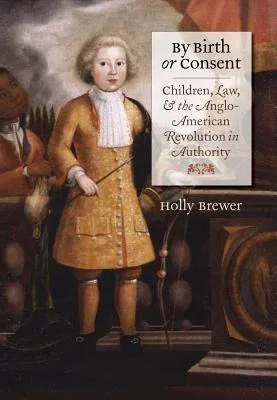In mid-sixteenth-century England, people were born into authority and
responsibility based on their social status. Thus elite children could
designate property or serve in Parliament, while children of the poorer
sort might be forced to sign labor contracts or be hanged for arson or
picking pockets. By the late eighteenth century, however, English and
American law began to emphasize contractual relations based on informed
consent rather than on birth status. In By Birth or Consent, Holly
Brewer explores how the changing legal status of children illuminates
the struggle over consent and status in England and America. As it
emerged through religious, political, and legal debates, the concept of
meaningful consent challenged the older order of birthright and became
central to the development of democratic political theory.
The struggle over meaningful consent had tremendous political and social
consequences, affecting the whole order of society. It granted new
powers to fathers and guardians at the same time that it challenged
those of masters and kings. Brewer's analysis reshapes the debate about
the origins of modern political ideology and makes connections between
Reformation religious debates, Enlightenment philosophy, and democratic
political theory.
In mid-sixteenth-century England, people were born into authority and
responsibility based on their social status. By the late eighteenth
century, however, English and American law began to emphasize
contractual relations based on informed consent rather than on birth
status. In By Birth or Consent, Holly Brewer explores how the changing
legal status of children illuminates the debates over consent and status
in England and America. The struggle over meaningful consent had
tremendous political and social consequences, affecting the whole order
of society. As it emerged through religious, political, and legal
debates, the concept of meaningful consent challenged the older order of
birthright and became central to the development of democratic political
theory.


